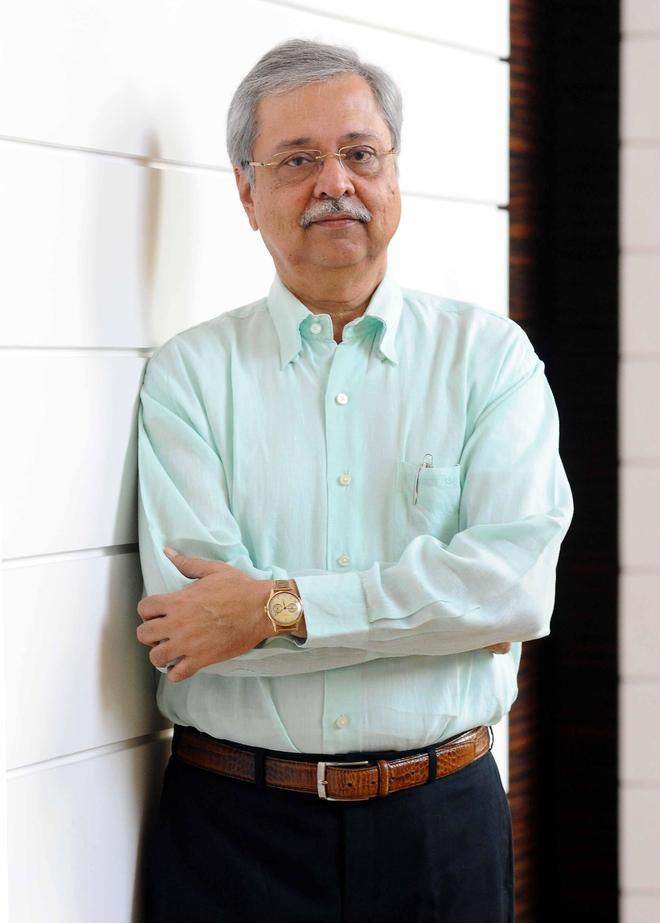Rudrangshu Mukherjee, author and academician, traces the chronological events of Netaji Subhash Chandra Bose and Pt Jawahar Lal Nehru Nehru’s lives in his forthcoming book, Nehru & Bose: Parallel Lives
Amarjot Kaur
While well-known historian and academician Rudrangshu Mukherjee frames the political perspectives of Nehru and Bose—two most influential personalities, whose existence is deemed critical in the freedom struggle of India—he seamlessly blends their fiery rhetoric dispositions with their radical beliefs.
At ‘Meet the Author’ programme organised by Ashoka University and Chandigarh Literary Society under Ashoka crossover series, Rudrangshu, who has authored as many as 16 novels, including Awadh in Revolt 1857, New Delhi: The Making of a Capital, and Great Speeches of Modern India, waxes eloquent about his forthcoming book, Nehru & Bose: Parallel Lives.
“I have a theme on which I will structure the content of my talk, let’s call it Comrades at Crossroads,” he begins. Stemming from the intellectual reserves of Rudrangshu’s research on Bose and Nehru, he employs his knowledge as a historian to elaborate on the facts that determine the route of his conversation as he also presents these facts with a series of anecdotes from their personal lives. “You see, both Bose and Nehru came from similar family backgrounds, they went abroad to study and they both returned to India with a socialist perspective. While most may think differently, but both of them were on very good terms with each other,” he says. Rudrangshu shares that Bose had admiration for Mussolini. He was more volatile, responsive and his views were inflexible. “However, Nehru,” he says, “was more introspective, fascinating and self-critical.”
Rudrangshu, who traces the chronological events of Bose and Nehru’s lives in his forthcoming book, details the significance of their distinct ideologies, which he shares, came on at crossroads, when they both met Gandhi during the formation of Congress. “Well, you see, they were both exchanging letters undersigned with ‘much love’, and they were great friends. So much so that when Bose’s health deteriorated, while his stay at the British Indian Prisons and he had to go to Germany for medical aid, at the same time, Nehru’s wife, who was also suffering from a lung disease was taken to Germany. In fact, when Kamla passed away, it was Bose who helped Nehru to make all the arrangements for her cremation while he also, in most of his letters thereafter, asked Nehru about his daughter’s well being. Now, only a friend would do that for another friend,” he says.
That Rudrangshu banishes most of the stereotypes about Bose and Nehru while underlining the basic distinction between their ideologies, he spares no comments about the current political scenario of the country. “Well, you may read my essays for that matter, if in interests you,” he says. However, as a vice-chancellor of the Ashoka University, he does spare a thought about the educational system of India. “I think our educational system trains the students to write the correct answers, while it should be training them to ask the correct questions,” he says.
“Also, I feel that the state should step back and let there be privatisation and new ideas,” he says. Ask him about the quotas and reservations in the present day educational system, and Rudrangshu is quick enough to reply, “I don’t believe in the numerical quotas, but I do believe affirmative action and equal intellectual merit,” he signs off.
amarjot@tribunemail.com
Photo: S Chandan
Unlock Exclusive Insights with The Tribune Premium
Take your experience further with Premium access.
Thought-provoking Opinions, Expert Analysis, In-depth Insights and other Member Only Benefits
Already a Member? Sign In Now










